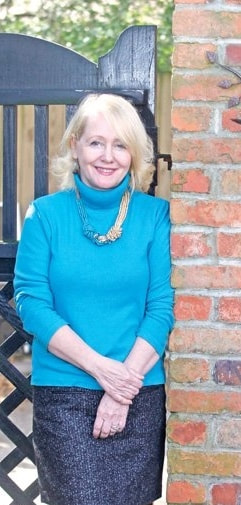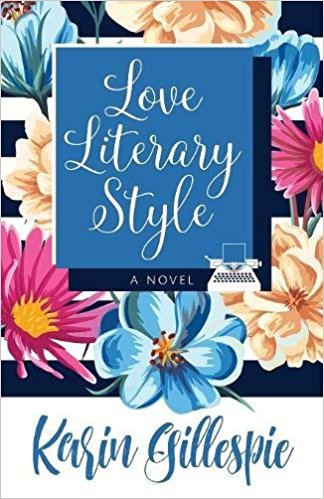 Karin Gillespie is the national-bestselling author of seven novels. She has also written for the New York Times, Washington Post and Writer Magazine. She has an MFA in creative writing from Converse College and lives in Augusta, Georgia. She writes a book column for the Augusta Chronicle, and a humor column for the Augusta Magazine and was a recent recipient of the Georgia Author of the Year award. I’ve been a novelist now for over sixteen years, and people occasionally ask me, what do you think it really takes to make it in this business? Most writer fret over whether they have enough talent. In my experience, talent is as cheap as bag of candy conversation hearts on Feb. 15. Talent is lovely, but if talent is coupled with unhealthy mind patterns, you won’t get very far in the writing world. Let’s begin with one of the biggest bugaboos on your way to success: Fear. What comes to mind when you hear the word artist? Starving? Ramen noodles? Have you ever heard this discouraging ditty: People who write novels, live in hovels? Society is constantly telling budding artists the same thing: Keep your day job. Being an artist is impractical. Only a talented few should dare to travel along the creative path. These messages come fast and thick, like propaganda. They twine their way into the artist’s mind, choking off all inspiration to write a short story or pen a poem. Spiritual teacher Allan Watts wrote a powerful lecture called, “‘What if Money Is No Object?” and encouraged people to pursue their creative dreams, saying they’ll eventually make money from it. He also chides society for not encouraging young people to go after what they desire. Watts said, “We’re bringing up children and educating them to live the same sort of lives we are living. In order that they may justify themselves and find satisfaction in life by bringing up their children to bring up their children to do the same thing, so it’s all retch, and no vomit. It never gets there. Too many artists are stalled before they even begin. Along with fear of censure comes fear of failure and fear of looking stupid. If any of these fears are keeping you from pursuing what you love, it might be useful to embark on an artistic recovery plan. I recommend reading and following the directives in The Artists Way. This book has helped thousands dislodge the limiting beliefs that keep them from their work. (Including myself; I wrote my first novel after reading it.) Elizabeth Gilbert says, “Without The Artist’s Way, there would have been no Eat, Pray, Love. Have you had some publishing successes and now consider yourself an expert? Not so fast. When my first novel was published, other writers were continually soliciting my advice, and I was tapped to lead workshops. After a while, I felt like I knew what I was doing, when the truth was I’d barely made a dent in the knowledge base. My false clarity cut off new insights at the knees, and I nearly lost my beginner’s mind. Beginner’s mind means you retain a wide-eyed openness and eagerness for a subject, and you don’t harden yourself with preconceptions. For instance, among writers there’s an ongoing debate between those who write organically (so called “pansters” because they write by the seat of their pants,) and those who write with an outline. Many people have their minds set in cement, and they cut themselves off from any information that deviates from their point-of-views. That’s a mistake. Artistic practice can teach you more than you could ever learn in a lifetime. Don’t be such an expert that you quit evolving. Speaking of lifelong learning, the other day I was reading Donald Maass’ Fire in Fiction, and he distinguishes between writers who are status seekers and storytellers. To succeed as a writer, you need to be the latter. As artists we often daydream about winning awards or creating high demand for our work, but a diet of success won’t sustain a lengthy career. In fact, more often, success gets in the way. A mind constantly focused on rewards tends to create work that reflects its limited state: cramped, derivative, stale. Readers call it “phoned-in” and can sense that the author’s attention is elsewhere. On the other hand, when you have a mind filled with love of craft and generosity to reader, these positive mind states infuse your writing and are bound to infect the reader. Sixteen years as a published writer and I can’t imagine any pastime more satisfying. Writing is like an account that earns compound interest, the more you deposit, the greater the riches you receive. Enid Bagnold said it beautifully: “Who wants to become a writer? And why? Because it’s the answer to everything. … It’s the streaming reason for living. To note, to pin down, to build up, to create, to be astonished at nothing, to cherish the oddities, to let nothing go down the drain, to make something, to make a great flower out of life, even if it’s a cactus.” Love Literary Style A stuffy lit professor and would-be novelist hooks up with a self-published romance writer from Decatur, Georgia who adores all flamingo-patterned attire. Literary Journal calls it, “Deceptively thought-provoking and addictive.” Check out Karin on Facebook or check out Karin's website Where to Buy Love Literary Style
1 Comment
10/3/2022 09:29:06 am
anks for sharing the article, and more importantly, your personal experience mindfully using our emotions as data about our inner state and knowing when it’s better to de-escalate by taking a time out are great tools. Appreciate you reading and sharing your story since I can certainly relate and I think others can to
Reply
Leave a Reply. |
AuthorI'm generally pulled in a million different directions and I wouldn't trade it for the world. Here's a glimpse of my life - hope you enjoy it! And if there's a big lapse between posts, well, that's the way life goes in Amy's world. Archives
October 2022
Categories
All
|
|
Copyright 2024 by Amy Rivers. All rights reserved. |
 RSS Feed
RSS Feed